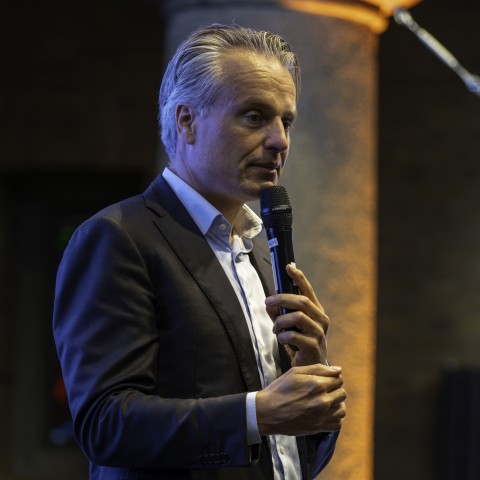
BUas Opens Academic Year 2025-2026: Inclusivity as a Driver for Innovation
Breda University of Applied Sciences (BUas) opened the new academic year with an inspiring meeting on diversity and inclusivity as drivers for innovation. During the opening, the university emphasised how different perspectives can lead to more creative solutions and a fairer society.
- About BUas
New strategic course towards 2029
During the opening ceremony, Executive Board President Jorrit Snijder presented the renewed strategic direction for the period 2025-2029. ‘Breda University of Applied Sciences is a European R&D university, focusing on innovations with industry relevance and societal impact,’ said Snijder.
The university uses the pay-off ‘Creating Meaningful Experiences’ and organises its strategy around three main pillars: Future-Ready Professionals, European University of Applied R&D, and Caring Community. BUas thus positions itself as a leading European research institution that develops innovations with both industrial relevance and social impact.
Diversity as a driver of innovation
Ingrid Timmermans (Vice President Executive Board) and Ajay Kapur (Academy Director Academy for Leisure & Events) were interviewed on their personal and professional view on the theme of ’Inclusivity as innovation’.
Keynote speaker Joris Luyendijk, author and anthropologist, shared insights from his book De zeven vinkjes (The Seven Checkmarks) on social inequality in the Netherlands. In his work, Luyendijk examines his own privileged position and argues that people with all seven privilege indicators will never experience real vulnerability, making it difficult for them to understand discrimination and exclusion. He showed how limited our definition of 'normal' often is and how homogeneity at the top can hinder innovation.
In addition, BUas lecturer and researcher Marco van Leeuwen and his students from the World Leisure Congress field school presented their research 'Accessibility in Leisure: How to Make Leisure and Events Accessible for Everyone'. Their findings clearly demonstrate how accessibility not only leads to more inclusive experiences, but can also help cities to distinguish themselves in innovative ways.
Expression through dance
A highlight of the afternoon was an energetic urban dance performance by Anna Tafel, Charley Hennessy and Lucas Benjamin. They presented a spontaneous composition based on dance styles such as waacking, locking and hip hop – styles that emerged in the 1970s as an outlet for queer people and people of colour. The performance underlined the power of different forms of self-expression and fitted perfectly with the theme of the day.
Jorrit traditionally concluded the opening with a festive countdown and informal networking drinks reception. ‘As a European R&D university, we prepare young professionals for a future in which different perspectives are essential for creative solutions,’ Snijder emphasised at the end.
